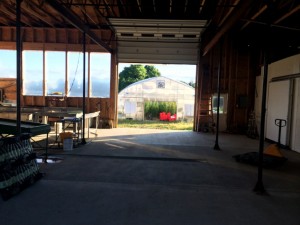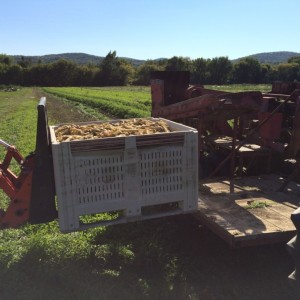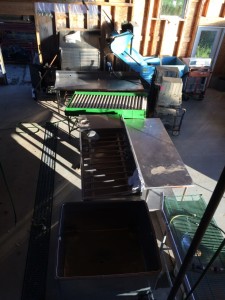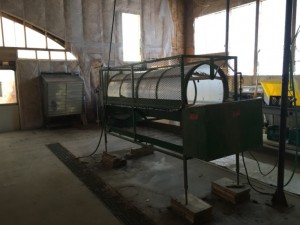By Christa Alexander, Jericho Settlers Farm
Food safety is not new to me. Even before I joined the VVBGA board and started hearing all about the new federal law (Food Safety and Modernization Act) food safety was forefront in my mind as my farm grew over the last decade. As an operator of a diversified farm producing both livestock and vegetables, my husband and I, along with our crew, implement food safety practices every day! We have a written farm produce safety plan and employee training protocol that covers everything from harvest techniques, to worker hygiene, to wash and pack standards to ensure our products are safe for our customers. This is information and practices we have put together on our own with guidance from UVM Extension and others over the past several years. Food safety is important to us, we do it because we should and it’s good business practice, but it’s something we’re fairly quiet about to the public. But all that is going to change. The public is going to be hearing more and more about the new federal regulations governing food safety on farms, and even if your farm is exempt from the federal regulations, you still want to be talking with your customers about what you’re doing for food safety on your farm. Wholesale buyers are going to be demanding documentation of your food safety practices (if they don’t already) no matter the size of your farm. CSA members are going to start inquiring, farmers market customers are going to want to know how you wash your greens, how you fertilize your fields, and more. Food safety is not something just large farms have to worry about!
As food safety on farms comes to the forefront of consumer concerns we need to be ready. Over the next few years, the Food Safety Modernization ACT (FSMA) and its large-farm food safety credentials (such as Harmonized GAP) will drive fresh produce market standards and public perception. But the majority of Vermont’s smaller and more diversified farms will be exempt from FSMA, and thus lack credentials in a changing market place.

New barn built with airflow and solarization in mind to help with sanitization and drying of wash and pack areas.
UVM Extension and the VVBGA are now acting in front of this market change, developing a cost-effective produce safety accreditation (The VVBGA PSA) program to provide these needed credentials for Vermont’s diversified produce farms. This program aims to maintain the credibility of Vermont-scale farming and reduce food safety risks, while increasing farm efficiency and produce quality.
Maybe you’re building a new cooler – do it with food safety in mind. Maybe you’re adding livestock to your farm operation – do it with food safety in mind. Maybe you’re hiring employees for the first time – train them with food safety in mind. UVM Extension and VVBGA are here to help you make practical food safety choices for your farm operation. The produce safety practices promoted by the PSA are common sense and science-based. It’s not overly cumbersome, it does require some thought and planning. Learn more about it VVBGA PSA website and do it now before your growing season ramps up and pushes it to the back burner. You and your customers will be happy you did!





Recent Comments